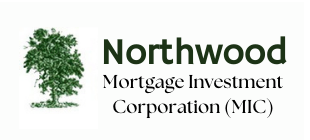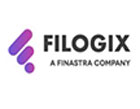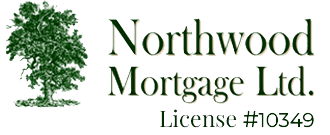Obtaining a commercial mortgage in Ontario will allow you to either expand an existing property or purchase an altogether new property. Business debts can also be consolidated via a commercial mortgage in Ontario. However, the procedures or steps that are involved in getting a commercial mortgage are quite different from the steps required to qualify for a residential mortgage.
It should also be noted that the interest rates for commercial mortgages tend to be much higher than their residential mortgage counterparts, as the risks incurred tend to be far greater with commercial properties. The good news is interest rates have hit an all-time low so financing for commercial real estate projects in Canada is fairly feasible today.
How to Obtain a Commercial Mortgage in Ontario
When most people think of a commercial mortgage they will think of a loan taken out to finance conventional commercial properties, such as a construction site, retail outlet or hotel. However, in reality, many other types of properties may also qualify for commercial real estate financing in Canada.
In fact, even a residential property can qualify for commercial financing if it is being utilized as an investment property. Moreover, the residential real estate property can be further dichotomized into three distinct categories; namely, residential commercial mix, pure residential (e.g., 5+ units), and pure residential properties that only house between one to four units.
What Lenders Look For
The only thing that commercial and residential mortgage loans have in common is that they both will be provided by either a private lender, a bank, or some other lending institution. For instance, a commercial mortgage can only be put towards a piece of land that is zoned for commercial purposes, or towards a commercial building. You also cannot operate an enterprise if it is on a piece of land that is zoned for residential purposes, nor can you construct a domicile that is zoned for commercial use.
The lender will also want to learn more about your enterprise. They will want to know if it is profitable and stable. They may ask you for promising future growth projections, a sound business plan or even an accurate financial statement before deciding on whether or not they want to lend to you. They will also check your credit history to make sure it is superb, and the same will apply to your investment partners, if applicable.
Moreover, they will also factor in the debt service coverage ratio; which consists of the disposable cash ratio to the required loan payment. The loan to value ratio is also relevant; this refers to the value of the mortgage vis-a-vis the property’s assessed value. Interestingly, the typical loan to value ratio for a commercial property will be between 55% and 75%. Also, the loan to value ratio for residential mortgages tends to be 85% or even higher in some cases.
The Commercial Mortgage Repayment Structure
The repayment structure for a commercial mortgage is also quite unique. For instance, a commercial mortgage will be divided into two distinct categories. The first is the term of the loan, which is also known as amortization. The second is balloon payments, which refer to the period where the borrower will either decide to sell the commercial property, refinance or pay off the remaining balance to obtain complete ownership. As for a residential mortgage, the borrower and the lender come to terms on the loan arrangement and the borrower agrees to pay off their loan over a predetermined period of time.
Hiring a Private Mortgage Professional
Due to all of the factors that we’ve mentioned, it can be difficult for some investors to obtain a commercial mortgage to fulfill their dreams. It is even more difficult to qualify for a commercial mortgage loan if you are severely indebted, want to start a new business or own an existing business that is struggling to make ends meet. Furthermore, if your prospective lender happens to be one of Canada’s major banks, then they will likely reject your application if they find your credit score to be less than exemplary.
The good news is hiring a private mortgage professional may help you qualify for a loan, as they will custom tailor a financing solution that speaks directly to your cash flow requirements. Commercial mortgages are more complicated than residential ones, and you simply can’t compare lending rates the way you can with residential mortgages. Moreover, the terms and conditions involved can differ greatly because of the complexity and myriad of criteria involved with commercial loans.
Evidently, the commercial rates are more difficult to decipher because commercial properties are considered much bigger risks than residential properties; this is because the success of a commercial enterprise will be entirely dependant on how successful the business is. A private mortgage professional will provide you with access to literally hundreds of commercial mortgage lenders, including lenders who qualify those who have declared bankruptcy or have a tarnished credit score. As such, virtually anyone who has the desire to obtain financing for a commercial real estate project in Canada can do so with a private mortgage professional by their side.
If you are in need of financing for commercial real estate projects in Canada, we can help. Northwood Mortgage™ is the proud recipient of the Consumer Choice Award in the GTA Central in 2017. We were established in 1990 and have over 25 years of experience in mortgage solutions. With a dedicated staff of over 200 proven professionals, Northwood Mortgage is one of the largest brokerage firms in the greater Toronto area. In regards to commercial mortgages in Ontario, we have arranged commercial loans as small as $10,000 and as big as $19,000,000, so no commercial loan is too big or too small at Northwood Mortgage. To learn more, call us at 1-888-492-3690, or visit our website.






































